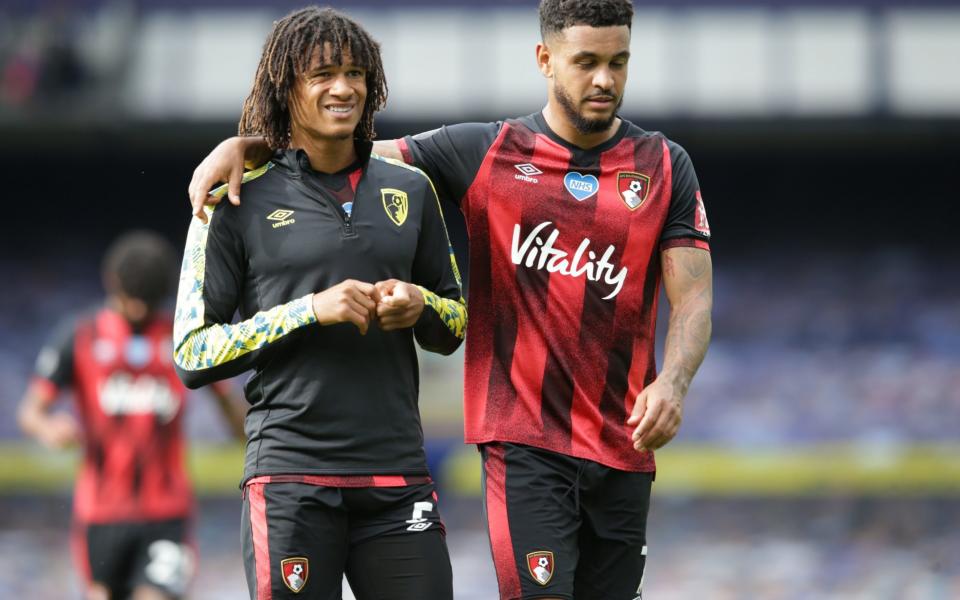Football agents fear for clubs' finances without fans in stadiums, as transfer business grinds to a halt

Agents fear the transfer market will suffer for years unless supporters are allowed through the turnstiles next season, with one leading intermediary describing football as “going bust”.
The window for business has been open for a week but there has been no frenzy of spending. Manchester City’s move for Nathan Ake in a £41million deal would sneak into the top 50 transfer in the Premier League when it gets completed.
Chief scouts and chairmen have been telling player representatives there will be less spending following the coronavirus pandemic and the level of investment depends on when crowds are allowed in arenas.
Clubs with the biggest stadiums can earn more than £5million per game through tickets and hospitality, while even the smallest would expect to lose £20million should the worst case scenario be realised and fans were shut out for the entire 2020/21 campaign.
For the bigger clubs, losing £100million of revenue will affect their spending, no matter how rich their owners are. Having fans back at a reduced capacity - socially distanced to prevent Covid-19 spread - will mean reduced income.
Stadiums such as Tottenham’s or St James’ Park were scheduled to host concerts or other sporting events and are now counting the cost of the pandemic. Spurs chairman Daniel Levy took a loan from the Covid Corporate Financing Facility, set up by the Government, after fears of losing £200million in the next year.

Other Premier League clubs including Arsenal and Everton have agreed wage deferrals with players, such is the impact of coronavirus. Without fans back in the stands, clubs will be where they were before Project Restart was thrashed out and the 2019/20 season was completed.
The biggest deal of the summer will be Jadon Sancho’s return to the Premier League when a deal between Manchester United and Borussia Dortmund is agreed for the England forward.
It has not been a straightforward negotiation, even though Sancho will welcome the move and United have made him their number one target. United are negotiating add-ons and installments to make the deal match Dortmund’s £108million asking price.
Free agents have been left waiting while clubs work out their budgets. Adam Lallana has secured a move to Brighton but Ryan Fraser and Jan Vertonghen are among the high-profile Bosmans yet to find a new club.
The written findings of Manchester City’s successful appeal against their Champions League ban contained an ominous warning to the rest of football about the impact of coronavirus.
City wanted the pandemic to be taken into consideration when their fine was imposed for failing to cooperate with Uefa.
“The Panel also does not find it appropriate to take into account the argument raised by MCFC at the hearing that the current Covid-19 pandemic should be reflected in the sanctions imposed considering the impact this has and may have for years to come on stadium attendance,” read the Court of Arbitration for Sport’s findings.
Attendances being affected for years will be worrying for the football agents who earned £263.3million in commissions last season. Some fear short-term pain, while other intermediaries believe the tightening will come after this summer.
Barcelona president Josep Bartemeu believes there will be three or four years of financial pain.
"The club lost €200million between March and June,” he said. "If the situation doesn't improve, there won't be people in the stands, at the museum or the shops and we'll keep losing money.
"This will cause us to revise our spending plans and which ones can wait. We have to adapt. All the big European clubs have been impacted by this and we are all working to adapt. This won't be for just one year, it could be for up to three or four years.”
Clubs are preparing for swap deals and creativity in the market because without fans in the stadiums, there will be less money to spend.
“We would be surprised to see further records tumbling this year given the uncertainty but you will see creativity from clubs in their transfer dealings,” said Tim Bridge, director in the Sports Business Group at Deloitte.
“You may well see more swap deals and undoubtedly clubs will negotiate payment terms that are favourable and allow them to spread the large payments over a longer period of time, to have the benefit of the player in the first instance but the cash hit over the long term.”

 Yahoo News
Yahoo News 